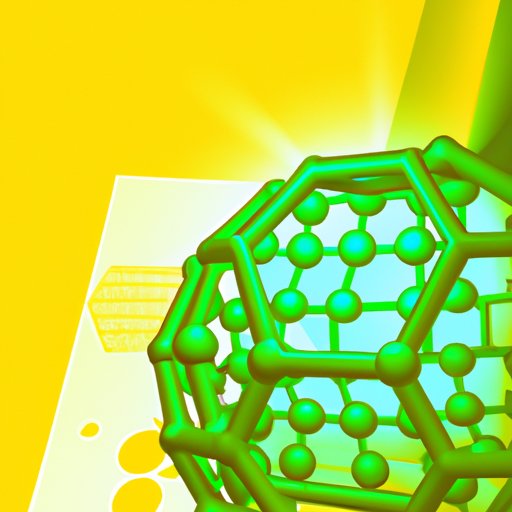Introduction
An abstract is a brief summary of a larger scientific project or study. It provides a comprehensive overview of the project’s objectives, methods, results, and conclusions. An abstract is typically included at the beginning of a research paper or journal article and serves as a way for readers to quickly become familiar with the project’s main ideas and findings. As such, an abstract is an essential component of any science project and should be carefully crafted to accurately reflect the project’s key points.
Explaining the Basics of an Abstract in a Science Project
At its most basic level, an abstract is a short summary of a research project. It provides a concise overview of the project’s purpose, methodology, results, and conclusions. According to Dr. Robert A. Day, author of How to Write and Publish a Scientific Paper, “The abstract is the most important component of the report because many readers will only read the abstract.”
Abstracts come in two distinct types: descriptive and informative. Descriptive abstracts provide a brief summary of the project’s main points without delving into the details of the project. Informative abstracts, on the other hand, are much more detailed and provide an in-depth overview of the project’s methodology, results, and conclusions. When writing an abstract for a science project, it is important to determine which type of abstract best suits the project’s needs.
Regardless of the type of abstract, there are certain components that all good abstracts should include. These components are:
- A statement of the project’s purpose and objectives
- A description of the project’s methodology
- A summary of the project’s results
- A discussion of the project’s conclusions and implications
Guidelines for Writing a Comprehensive Abstract for Your Science Project
When writing an abstract for a science project, there are several guidelines to keep in mind. First, it is important to choose the appropriate content for the abstract. The abstract should include only the most relevant information about the project and should avoid superfluous details. Additionally, the abstract should be structured in a logical manner and should flow from one point to the next.
It is also important to adhere to word limits when writing an abstract. Most journals and conferences have specific word limits for abstracts, so it is important to stay within these limits. If the project requires more space than is allowed by the word limit, it may be necessary to break the abstract down into multiple sections.

How an Abstract Enhances Your Science Project Results
An abstract is an essential component of any science project, as it provides readers with an overview of the project’s main points. An abstract can also serve to enhance the project’s results by summarizing the project’s information, providing context for the results, and clarifying the relevance of the project.
By summarizing the project’s information, an abstract allows readers to quickly gain an understanding of the project’s main ideas and findings. Additionally, an abstract can provide context for the project’s results by providing an overview of the project’s methodology and conclusions. Finally, an abstract can clarify the relevance of the project by emphasizing why the project is important and how it contributes to existing knowledge.

Analyzing Examples of Abstracts in Science Projects
To better understand how to craft an effective abstract for a science project, it is helpful to analyze examples of abstracts in scientific research. When examining these examples, it is important to evaluate their structure and content. Evaluating the structure of an abstract can help to identify how the abstract is organized and what information is included. Examining the content of an abstract can provide insight into how the project’s main points are presented and what information is emphasized.

Tips for Crafting an Effective Abstract for Your Science Project
When crafting an effective abstract for a science project, there are several tips to keep in mind. First, it is important to be concise. An abstract should be succinct and should avoid unnecessary details. Second, it is important to use active voice when writing an abstract. Active voice makes the abstract easier to read and understand. Third, it is important to focus on relevant information. An abstract should include only the most pertinent information about the project. Finally, it is important to revise and edit the abstract. Revising and editing can help to ensure that the abstract is clear and concise.
Conclusion
An abstract is an essential component of any science project and should be carefully crafted to accurately reflect the project’s key points. An abstract can provide readers with a brief overview of the project’s main ideas and findings and can enhance the project’s results by summarizing the project’s information, providing context for the results, and clarifying the relevance of the project. To craft an effective abstract for a science project, it is important to choose the appropriate content, structure the abstract in a logical manner, adhere to word limits, use active voice, and revise and edit the abstract. By following these tips, you can create an effective abstract for your science project.
(Note: Is this article not meeting your expectations? Do you have knowledge or insights to share? Unlock new opportunities and expand your reach by joining our authors team. Click Registration to join us and share your expertise with our readers.)
